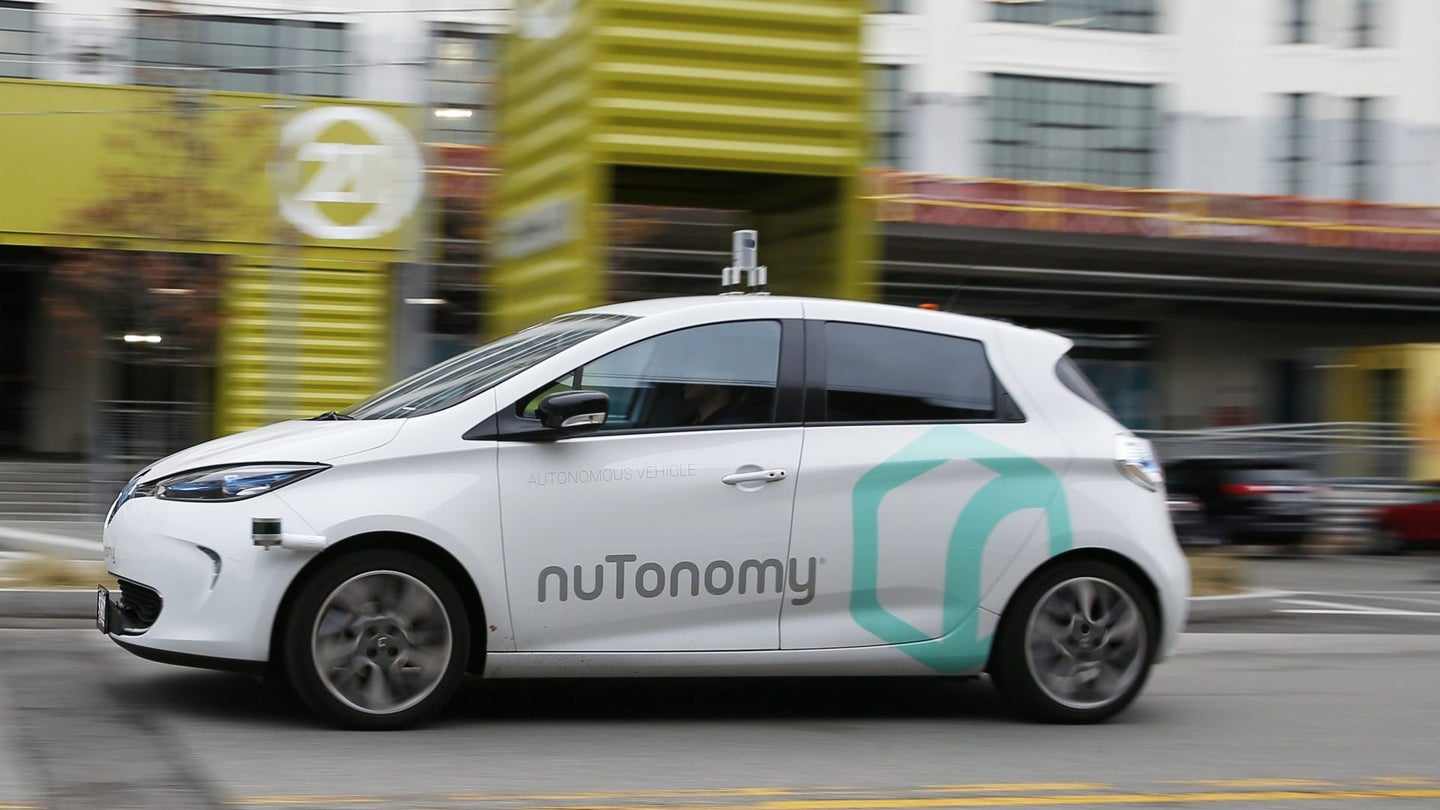NuTonomy’s Self-Driving Taxis Are Adapting to Seagulls, Other Boston-Area Quirks
The Massachusetts-based tech company’s autonomous vehicles have mastered seabirds—now they need to figure out Boston drivers.

Seagulls: the unexpected bane of the self-driving car. They're small, so they look like an object on the road that can be ignored—but a dozen congregating in the middle of the street looks to nuTonomy's autonomous taxis like a large, unidentifiable (potentially) flying object, according to an article in The Boston Globe.
Sea birds are just one of the new lessons engineers are teaching these self-driving cars in Benton. NuTonomy has completed 100 miles of autonomous test drives in an industrial park in Boston, Massachusetts, and is expected to begin a second stage of tests at night and in inclement weather soon, pending approval from city officials. Eventually, the company plans to expand tests to public streets in designated Boston areas. But first it has to learn to drive like a...Bostonian.
Local self-driving start-up nuTonomy comes home to roost
The Cambridge-based start-up launched its self-driving taxis in Singapore last year, where it's testing an on-demand driverless ride-hailing service with partner Grab. NuTonomy has since brought the vehicles back to its home state, where it's testing the autonomous system in a new environment. New signs, sights, and animals all introduce novel challenges that the autonomous system hasn't yet learned. When they encounter new scenarios, engineers feed the system information to help it learn and apply the knowledge to future situations.
Flocks of seagulls are an example of a localized obstacle the vehicles haven't encountered in Singapore. They're common in Boston, and appear differently to nuTonomy's taxis depending on whether a bird is by itself or part of a flock. That problem is easy enough to overcome, especially since the vehicles approach them much like humans do: by driving slowly at them until the birds fly away, according to the Globe.
Which brings us (and them) to perhaps the biggest challenge the driverless taxis need to face: Boston drivers.
Boston, Massachusetts drivers are notoriously aggressive and erratic
Boston has the worst drivers in the U.S., according to insurance company Allstate's annual report, and Beantown drivers are a whopping 168 percent more likely to have an accident than the average American driver, according to Boston Magazine. The city's motorists tend to operate as if turn signals are completely optional, and are notorious for pulling haphazard moves such as "Boston Lefts" and the "Boston bump." Add that to bad weather, crumbling roads, and pedestrians who largely ignore traffic signals, and nuTonomy's taxis have a lot of nuanced behaviors to which they need to adapt.
NuTonomy plans to launch its self-driving mobility-on-demand service in Singapore in 2018. The company hasn't said when it will progress to the next stages of its autonomous testing in Boston, too.
